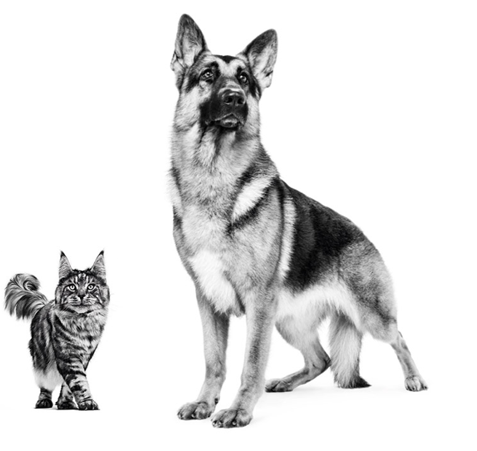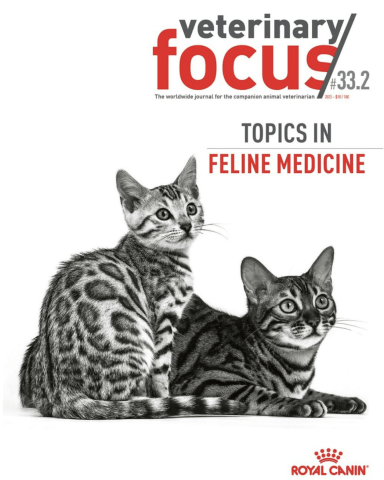
Get access to all handy features included in the IVIS website
- Get unlimited access to books, proceedings and journals.
- Get access to a global catalogue of meetings, on-site and online courses, webinars and educational videos.
- Bookmark your favorite articles in My Library for future reading.
- Save future meetings and courses in My Calendar and My e-Learning.
- Ask authors questions and read what others have to say.
Coping with mistakes in an effective way
Marie K. Holowaychuk
Get access to all handy features included in the IVIS website
- Get unlimited access to books, proceedings and journals.
- Get access to a global catalogue of meetings, on-site and online courses, webinars and educational videos.
- Bookmark your favorite articles in My Library for future reading.
- Save future meetings and courses in My Calendar and My e-Learning.
- Ask authors questions and read what others have to say.
Read
Mistakes happen to all of us in veterinary practice; this article looks at how different people react in different ways when things go wrong and – importantly – discusses how we can best cope with mistakes.
Marie K. Holowaychuk
DVM, Dip. ACVECC, CYT, Reviving Veterinary Medicine, Calgary, Canada
Dr. Holowaychuk is a small animal emergency and critical care specialist and passionate advocate for veterinary wellbeing. She currently works as a locum in private referral practice and as a teleconsultant, but is also a yoga teacher and wellness coach, facilitating workshops, retreats, individual and group coaching, and delivering online programs for veterinary team members. In addition, as CEO and Founder of Reviving Veterinary Medicine, she hosts the Reviving Vet Med podcast and recently launched a new website with wellbeing resources for veterinary professionals (www.revivingvetmed.com).

Key points
- Mistakes are common in veterinary practice, and can have significant consequences among veterinarians when there is a “blame and shame” culture.
- Adverse events, whereby a mistake results in harm to a patient, are more likely to result in longer-term negative impacts on a veterinarian’s life compared to harmless mistakes.
- Disclosing the mistake to the pet owner, uncovering the technical aspects that will help prevent a recurrence, and leaning on others for support enhance recovery after a mistake.
- Emotional learning enhances resilience after a mistake; this can include practicing mindfulness, striving for excellence rather than perfection, and cultivating self-compassion.
Introduction
Some degree of error is unavoidable with any human task, which means veterinarians are at risk of making mistakes when performing their clinical work; in fact, mistakes are an inevitable part of the practice of veterinary medicine. While mistakes are to be anticipated through one’s career, the fear of mistakes remains one of the most common practice-related stressors cited by veterinarians 1. This fear can be exacerbated by moral stress, where an individual is working amidst circumstances that lead to ethical conflict 2; for example, when a short-staffed practice team is managing a complex case, or when a veterinarian is asked to perform a surgical procedure that they feel unqualified or untrained to do. In these and other similar situations that cause moral stress, the perceived risk of error increases and the veterinarian is more vulnerable to psychological distress.
Fears regarding mistakes pertain not only to the potential harm to the animal, but also concerns about possible litigation, complaints to the veterinary governing body, and the perceptions of clients and colleagues. In many circumstances, the first inclination is to hide the error due to fears about being blamed or having personal feelings of shame. Some veterinarians who make errors or are involved with adverse events have the potential to bounce back quickly with skills and coping strategies that cultivate resilience, but those who dwell on the mistake itself or subscribe to shame-induced self-criticism are more apt to experience long-term distress afterwards, or may even consider leaving the profession altogether. Important steps must be taken to embrace the idea that mistakes are a normal part of veterinary practice, to remove the “blame and shame” culture that persists in veterinary medicine, and to mindfully approach the mistake with disclosure, perspective, support, and technical and emotional learning. Mistakes are an inevitable part of veterinary practice and they require mindfulness to recover quickly and effectively.
[...]
Get access to all handy features included in the IVIS website
- Get unlimited access to books, proceedings and journals.
- Get access to a global catalogue of meetings, on-site and online courses, webinars and educational videos.
- Bookmark your favorite articles in My Library for future reading.
- Save future meetings and courses in My Calendar and My e-Learning.
- Ask authors questions and read what others have to say.
About
Copyright Statement
© All text and images in this publication are copyright protected and cannot be reproduced or copied in any way.Related Content
Readers also viewed these publications
Subscribe
Access to the content of the Veterinary Focus website is reserved for animal health professionals. If you do not yet have a user account with Royal Canin you can create a free account by selecting the New User form. Subscription to the journal is free and issues in your preferred language can be obtained at the Veterinary Focus website.



Comments (0)
Ask the author
0 comments